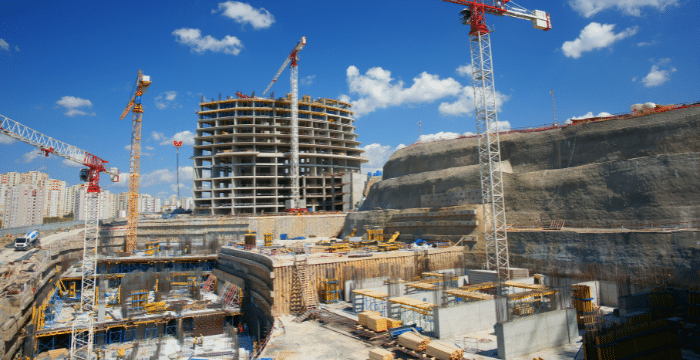EPC contracts have become widely used in project finance documents and are the preferred choice for many international development projects. EPC contracts’ increasing popularity is not solely due to their turnkey delivery method, which places responsibility for the entire project on the contractor, but also due to other factors. This system offer a comprehensive approach to project management that can reduce risk and costs for the owner.
While much of the discussion focuses on the turnkey complete delivery construction projects, attributing their unparalleled acceptance to turnkey delivery is a simplistic view of EPC contracts and, more broadly, project finance documentation. In this article, we will explore the key features and benefits of EPC contracts and how they can help ensure the success of large-scale construction projects.
Table of Content
- What is an EPC Contract?
- Engineering Duties in EPC Contract
- Procurement Duties in EPC Contract
- Construction Duties in EPC Contract
- Advantages of EPC Contract
- Conclusion
What is an EPC Contract?

EPC contracts are typically used in industries such as power generation, oil and gas, and transportation. By utilizing an EPC contract, the owner can streamline the construction process, reduce risks and costs, and ensure that the project is completed to the required quality standards.
Engineering Duties in EPC Contract
Engineering plays a crucial role in EPC contracts, where the contractor is responsible for the design and engineering of the project. In an EPC contract, the contractor typically takes on the responsibility for the entire engineering process, from initial design to detailed engineering, procurement, and construction.
The contractor must ensure that the project is designed to meet the owner’s specifications and any regulatory requirements or industry standards. This requires high expertise in various engineering fields, such as civil, mechanical, and electrical engineering. The contractor must also ensure that the project is designed to optimize performance, minimize costs, and reduce environmental impact.
In addition to designing the project, the contractor is responsible for managing the engineering process throughout the project’s lifecycle. This includes developing detailed engineering plans and schedules and ensuring that all engineering work is completed on time and to the required quality standards.
Also read: 5 Tips to Optimize Your Engineering Operation
Procurement Duties in EPC Contract
Procurement is a critical component of EPC contracts, where the contractor is responsible for sourcing and purchasing all materials, equipment, and services required to complete the project. Under an EPC contract, the procurement process begins with identifying materials and equipment needed for the project. The contractor must then develop a procurement plan specifying each item’s required quantities, delivery schedules, and quality standards.
One of the critical challenges in procurement duties in EPC contracts is ensuring that producing materials and equipment at the right time and cost. The contractor must work closely with the project team to ensure that the procurement schedule is aligned with the construction schedule and that materials and equipment are delivered to the site as needed.
Construction Duties in EPC Contract
Construction duties in EPC contracts involve the actual building of the project. The contractor is responsible for constructing the project under the engineering plans, procurement schedule, and quality standards specified in the contract. The construction phase of an EPC project typically involves several key activities, including site preparation, and structural and mechanical installation.
One of the critical challenges of construction duties in EPC contracts is managing the various stakeholders involved in the project. This includes managing the subcontractors and vendors responsible for specific aspects of the construction work and managing relationships with the owner and any regulatory bodies involved in the project.
Advantages of EPC Contract
EPC (Engineering, Procurement, and Construction) contracts have emerged as a popular project delivery method, particularly for large-scale infrastructure and energy projects. EPC contracts offer several advantages over other project delivery methods. Here are some advantages of EPC contracts:
Single point of responsibility
EPC contracts provide a single point of responsibility for a project’s design, procurement, and construction. This means that the owner only has to deal with one contractor responsible for delivering the project on time, within budget, and to the required quality standards. This reduces the owner’s risk and simplifies the project management process, as there is no need to coordinate multiple contractors or manage complex supply chains.
Fixed contract price
Another advantage of EPC contracts is the fixed contract price, which gives the owner greater cost certainty. With EPC contracts, the contractor is responsible for managing all aspects of the project, including procurement and construction. This means the contractor can provide a fixed price for the entire project, which the owner agrees upon before work begins. Furthermore, this fixed price offers the owner greater cost certainty, as they know exactly how much the project will cost.
Force majeure
Force majeure clauses are a standard feature in EPC contracts, providing an important advantage for the owner and the contractor. This events are unforeseeable circumstances beyond either party’s control, such as natural disasters, political unrest, or pandemics. With an EPC contract, both parties can agree on the specific events that will trigger a force majeure clause.
Flexibility
One can tailor these advantages to meet the specific needs of each project. One can adapt EPC contracts to suit different project sizes and industries, and customize them to reflect the unique requirements. For example, can modify the scope of work to include additional deliverables, or can adjust the timeline.
Have a right to suspend the contract
One of the advantages of EPC contracts is that they typically provide the owner with the right to suspend the contract if necessary. This can be a valuable tool when the owner needs to pause the project for reasons beyond their control. The right to suspend the contract allows the owner to put the project on hold without breaching the agreement.
Caps on liability
EPC contracts often include liability caps, providing an advantage for both parties. Caps on liability limit the damages that either party can claim in case of a breach of contract. This can provide greater certainty and stability for both parties, as they are not expose to potentially unlimited liability.
Security
These advantages help to provide both parties with financial and legal protection in the event of a breach of contract. Security can take many forms, such as a performance bond, a letter of credit, or an escrow account. It assures the owner that the contractor will perform its obligations under the contract. Security also informs the contractor that it will be paid for its work, even if the owner defaults.
Performance guarantee
A performance guarantee is an important component of an EPC contract that provides assurance to the owner that the contractor will complete the project according to the agreed-upon specifications and standards. The performance guarantee typically takes the form of a bond or letter of credit.
Performance specification
Performance specifications are an essential component of EPC contracts, as they define the technical requirements and performance standards. During the project’s design phase, the team typically develops performance specifications that offer a clear and description of the project’s.
Fixed completion
A fixed completion date is a crucial advantage of EPC contracts, as it provides the owner with certainty regarding the timing. In an EPC contract, the contractor is responsible for delivering the completed project on or before the fix completion date. This completion date gives the owner a clear understanding of when the project complete.
Conclusion
In conclusion, an EPC contract is a comprehensive agreement that covers all aspects of a construction project. EPC contracts provide several benefits to the owner and the contractor, such as cost and time savings and performance guarantees.
Overall, EPC contracts can be an effective way to manage complex construction projects. It would be even easier for you if you could manage them by operating the system digitally. HashMicro offers the perfect solution through engineering software to make EPC contracts easier to manage. Use our product and click here to try the free demo!

























































